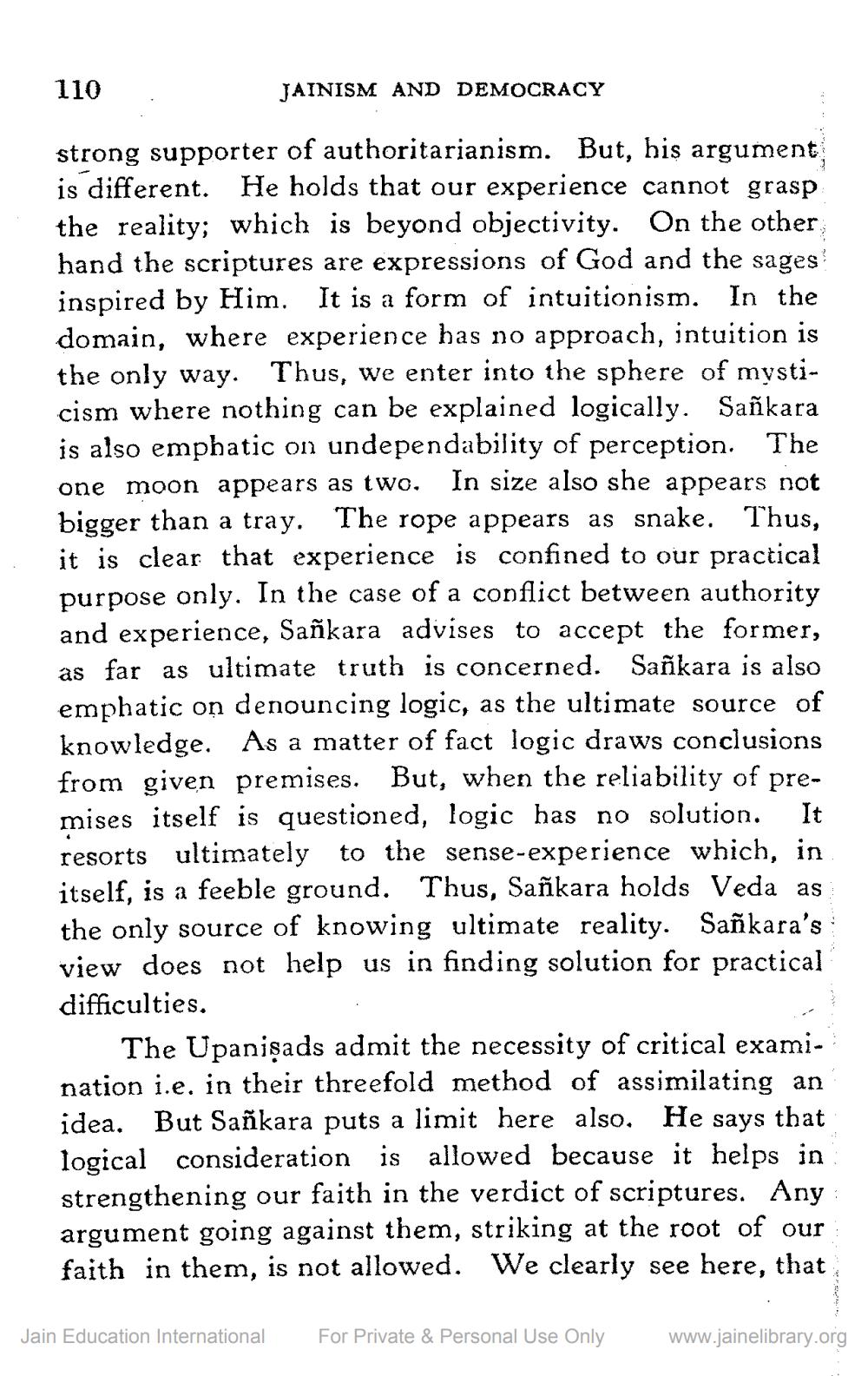________________
110
TAINISM AND DEMOCRACY
strong supporter of authoritarianism. But, his argument is different. He holds that our experience cannot grasp the reality; which is beyond objectivity. On the other hand the scriptures are expressions of God and the sages inspired by Him. It is a form of intuitionism. In the domain, where experience has no approach, intuition is the only way. Thus, we enter into the sphere of mysticism where nothing can be explained logically. Sañkara is also emphatic on undependability of perception. The one moon appears as two. In size also she appears not bigger than a tray. The rope appears as snake. Thus, it is clear that experience is confined to our practical purpose only. In the case of a conflict between authority and experience, Sañkara advises to accept the former, as far as ultimate truth is concerned. Sañkara is also emphatic on denouncing logic, as the ultimate source of knowledge. As a matter of fact logic draws conclusions from given premises. But, when the reliability of premises itself is questioned, logic has no solution. It resorts ultimately to the sense-experience which, in itself, is a feeble ground. Thus, Sañkara holds Veda as the only source of knowing ultimate reality. Sañkara's view does not help us in finding solution for practical difficulties.
The Upanişads admit the necessity of critical examination i.e. in their threefold method of assimilating an idea. But Sañkara puts a limit here also. He says that logical consideration is allowed because it helps in strengthening our faith in the verdict of scriptures. Any argument going against them, striking at the root of our faith in them, is not allowed. We clearly see here, that
Jain Education International
For Private & Personal Use Only
www.jainelibrary.org




